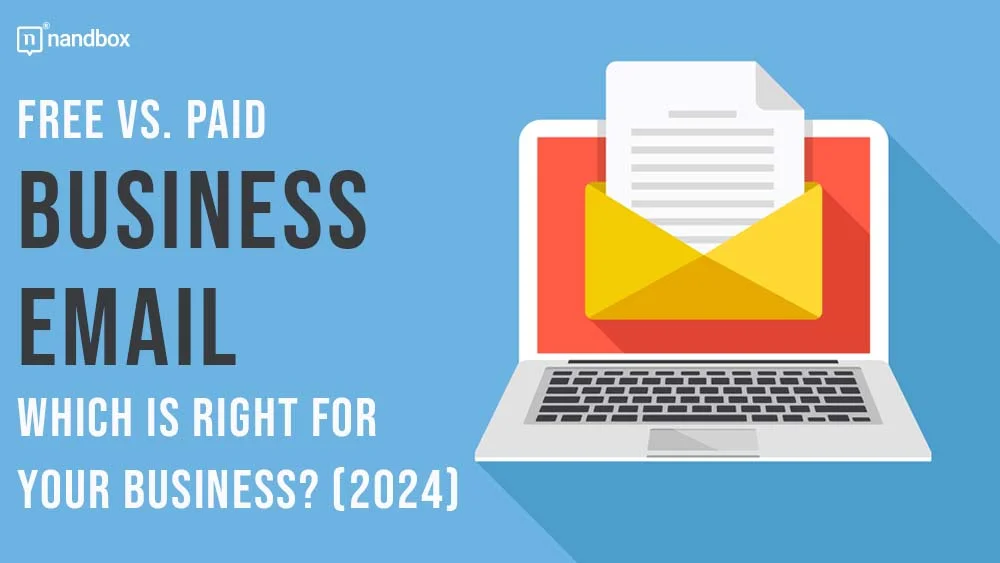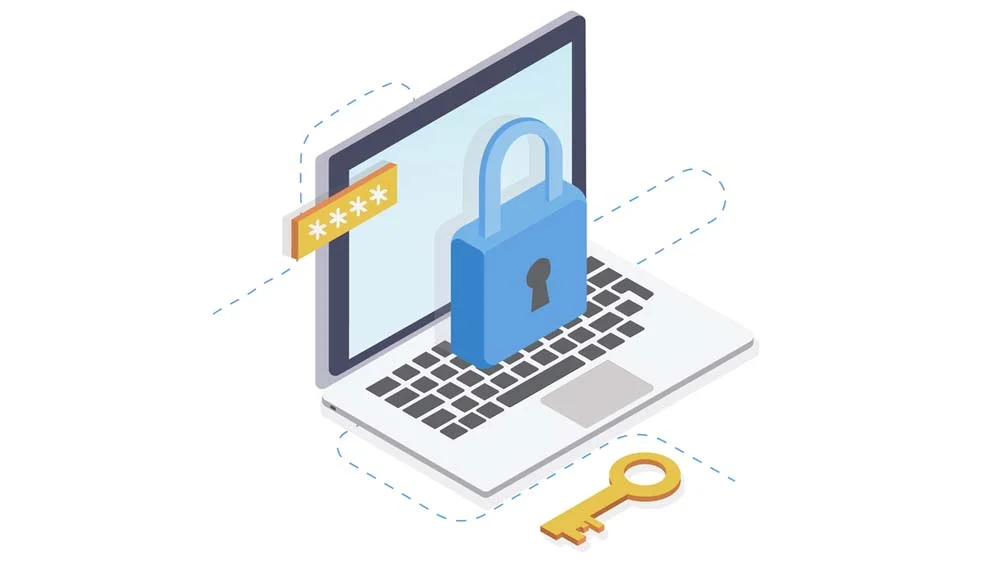Professional email communication is essential in today’s corporate environment. It acts as a virtual handshake, building rapport, encouraging confidence, and showcasing your company’s dedication to smooth communication. There are notable distinctions between free email vs. paid email alternatives, so selecting the best one for your company needs considerable thought.
Even if they are useful for personal use, free email services frequently need more features, security, and branding options for formal corporate communications. Conversely, paid corporate email hosting comes with several benefits. It can greatly improve your company’s reputation, expedite communication, and protect confidential information.
This in-depth study will thoroughly examine the features, benefits, and drawbacks of both free and paid business email hosting. You may make an informed decision and choose the email solution that best fits your organization’s unique demands, budget, and long-term objectives by weighing the advantages and disadvantages of each option.
Free Business Email: Pros and Cons
Free business email services, such as those offered by Google Workspace (formerly G Suite) or Microsoft Outlook, can be attractive, especially for startups and small businesses operating on tight budgets. Let’s delve into the advantages and disadvantages of opting for a free business email solution:
Pros:
No Upfront Cost
The most obvious advantage is the absence of any initial financial investment. This can particularly appeal to businesses in their early stages or those with limited resources.
Easy Setup and Use
Free business email services are typically easy to set up and use, even for those without technical expertise. The user interfaces are often intuitive and familiar, resembling personal email accounts.
Integration with Other Free Services
Many free business email providers offer integration with other free productivity tools like calendars, document editors, and video conferencing platforms. This provide a convenient all-in-one solution for basic business needs.
Suitable for Very Small Businesses or Individuals
A free business email suffices in the short term for businesses with minimal email requirements or individuals just starting.
Cons:
Limited Features and Storage
Free business email services often come with limited features and storage space compared to paid plans. This can hinder businesses requiring advanced email functionalities or handling large emails and attachments.
Lack of a Custom Domain Name
One of the major drawbacks of free business email is the absence of a custom domain name. Your email address will typically include the provider’s domain (e.g., yourname@gmail.com), which may not project a professional image for your business.
Less Professional Appearance
Using a generic email address can make your business appear less established and trustworthy than having a branded email address with your domain name.
Potential for Ads and Distractions
Free email services often display advertisements in your inbox, which can be distracting and unprofessional.
Limited Customer Support
Support options for free business email users are often limited to online forums or knowledge bases, and response times may be slower than paid plans with dedicated support channels.
Less Control Over Data and Privacy
Free email providers may have less stringent privacy policies, and your data could be used for targeted advertising or other purposes.
In summary, free business email services are an affordable place to start. However, they have drawbacks in terms of features, professionalism, security, and control. Switching to a paid business email hosting plan or an encrypted email provider is necessary as your company expands and your needs change in order to protect your brand, improve security, and gain access to cutting-edge services that can expedite communication and increase productivity.
Paid Business Email: Pros and Cons
Paid business email hosting offered by providers like Namecheap, Google Workspace, Microsoft 365, or Spacemail, offers several advantages over free options, but it comes at a cost. Let’s delve into the pros and cons of paid business email:
Pros:
- Custom Domain Name: This is the most significant advantage. An email address like yourname@[yourbusiness].com instantly elevates your brand image, conveying professionalism and credibility. It reinforces your brand identity and makes a lasting impression on your customers and clients.
- More Professional Appearance: A branded email address with your own domain name signals that you’re a serious business and instills trust in your recipients.
- More Features and Storage: Paid business email plans typically offer a wider range of features, including larger storage quotas, advanced email filtering, calendar and contact integration, and collaboration tools. These features can significantly enhance productivity and streamline communication within your team.
- Enhanced Security and Privacy: Paid providers invest heavily in security measures like spam filtering, virus protection, and encryption, making them viable Proofpoint alternatives for businesses seeking enhanced protection. They also tend to have stricter privacy policies, ensuring your data is protected and not used for targeted advertising.
- Better Customer Support: With paid plans, you typically receive priority customer support, including access to dedicated support channels and faster response times. This can be crucial when facing technical issues that could disrupt your business operations.
- More Control over Data and Branding: Paid business email offers more control over your data, allowing you to customize branding elements like logos and email signatures to align with your company’s image.
Cons:
- Monthly or Annual Fees: The most obvious drawback is the recurring cost of paid business email hosting. You’ll typically pay monthly,r annually, or biyearly, depending on the provider and plan.
- May Require Technical Setup or Migration: If you’re switching from a free email provider, migrating your existing emails and contacts might require some technical setup, although many providers offer assistance. By the way, some of them offer Migration tools. As an example, it’s easy to import your emails in a few simple steps using Spacemail Migration tool. Their email migration tool allows you to import emails using the IMAP protocol.
- Not Necessary for Very Small Businesses or Individuals: A free email service with minimal email requirements and a limited budget may suffice for individuals or small businesses.
In conclusion, while paid business email hosting comes with a cost, its benefits in terms of professionalism, features, security, and support can be invaluable for growing businesses. Consider your specific needs, budget, and long-term goals to determine whether the investment in paid business email is justified for your organization.
Key Differences Between Free Email vs. Paid Email
To make an informed decision between free email vs. paid email email hosting, it’s crucial to understand the key differences that set them apart.
Domain Name:
The most significant distinction lies in the domain name. Free business email services typically provide a generic domain name that includes the provider’s name (e.g., yourname@gmail.com) In contrast, paid business email hosting allows you to use your custom domain name (e.g., yourname@[yourbusiness].com). A custom domain reinforces your brand identity, enhances professionalism, and instills trust in your recipients.
Features:
Free email providers usually offer basic features like email, contacts, and calendar integration. However, they often need advanced features like large storage quotas, robust spam filtering, virus protection, auto-discovery, email archiving, and collaboration tools like shared calendars and document editing. On the other hand, paid business email hosting typically provides a wider range of features. This allows businesses to tailor their email experience to their specific needs.
Security:
Security is paramount for business email communication, especially when handling sensitive data. Free email providers may have less stringent security measures compared to paid providers. This makes them more susceptible to spam, phishing attacks, and data breaches. Paid business email hosting often includes advanced security features like two-factor authentication, data encryption, and proactive threat monitoring, such as Email black list monitoring, safeguarding your emails and data from unauthorized access and ensuring your emails reach their intended recipients
Support:
The level of customer support also varies significantly between free email vs. paid email. Free providers generally offer limited support options like online forums or knowledge bases, where response times can be slow. Paid business email hosting typically includes dedicated support channels like phone, email, or live chat, with faster response times and more personalized assistance.
Cost:
While free business email comes with no upfront cost, it’s important to consider the potential hidden costs. Limited storage can necessitate upgrading to a paid plan, while the need for a custom domain might require purchasing a domain separately. Paid business email, on the other hand, involves a recurring monthly or annual fee. However, it provides better value for money in the long run due to its enhanced features, security, and support. While free and paid email services offer different levels of functionality, businesses often rely on dedicated email management software to streamline communication, enhance security, and improve overall team productivity.
By understanding these key differences, you can assess which option aligns better with your business’s requirements and budget, ensuring your email communication is professional and secure.
Choosing the Right Option for Your Business
The decision between free email vs. paid email hinges on several factors specific to your business:
Business Size:
- Solopreneurs and Freelancers: A free email service might be sufficient if you’re a one-person operation or a freelancer with limited email needs. It offers basic functionalities without the financial burden.
- Small to Medium Businesses: As your business grows, so do your communication needs. Paid business email becomes more valuable, providing a professional image with a custom domain, enhanced security, and additional features that streamline communication and collaboration.
- Large Enterprises: For larger organizations with complex communication requirements and stringent security needs, paid business email is often preferred. It offers the scalability, advanced features, and robust security necessary for seamless communication and data protection.
Budget:
- Tight Budget: Free email services are appealing due to their zero upfront cost. However, consider the long-term value of paid email. The enhanced professionalism, security, and features can lead to better brand perception, improved productivity, and increased revenue.
- Flexible Budget: If you have budget flexibility, explore paid business email options offering different tiers with varying features and storage capacities. You can choose a plan that aligns with your current needs and budget, with the option to upgrade as your business grows.
Branding:
- Professional Image: A custom domain email address (e.g., yourname@[yourbusiness].com) creates a more polished and professional image compared to a generic address (e.g., yourname@gmail.com). It reinforces your brand identity and makes a lasting impression on your recipients.
- Credibility and Trust: A professional email address signals that you take your business seriously and are committed to quality communication. This can foster trust and credibility among your customers and clients.
Features:
- Storage: Assess your email storage needs based on the volume of emails and attachments you typically handle. Free email often has limited storage, while paid plans offer more generous options, including archiving and unlimited storage.
- Security: Prioritize security features like spam filtering, virus protection, and two-factor authentication, especially if you handle sensitive business or customer data.
- Collaboration: If your team needs to collaborate on projects, calendars, or documents, paid business email often includes collaboration tools that streamline teamwork.
Support:
- Self-Reliance: If you’re comfortable troubleshooting technical issues independently, free email’s limited support might suffice. However, for critical business communications, reliable and timely support is essential.
- Dedicated Assistance: Paid business email hosting usually offers dedicated support channels with faster response times. This ensures that email-related problems are addressed promptly and efficiently.
By carefully evaluating these factors, you can confidently choose the business email solution that best suits your unique needs and positions your business for success.
Recommendations
Choosing between free email vs. paid email ultimately boils down to your specific needs and priorities. Let’s outline some scenarios where each option might be the best fit:
When to Choose Free Business Email:
For very small businesses or solopreneurs with limited budgets
a free business email service can be a good starting point if you’re starting and have a tight budget. It provides basic email functionality without any financial investment.
Businesses with minimal email communication need
A free email service might suffice if you don’t send or receive a large volume of emails and don’t require advanced features.
Temporary or short-term projects
If you need a professional email address for a temporary or short-term venture, a free service can be a cost-effective solution.
When to Choose Paid Business Email:
Growing businesses that prioritize professionalism
As your business expands, a custom domain email address becomes essential for establishing a professional brand image and building credibility with clients and partners.
Businesses that need advanced features
If you require advanced features like large storage quotas, enhanced security measures, email archiving, or collaboration tools, paid business email hosting is the way to go.
Businesses that handle sensitive information
If you regularly exchange confidential information or client data via email, paid business email offers enhanced security and privacy features to protect your communications.
Businesses that require reliable customer support
If you need prompt and trustworthy support for email-related issues, paid business email providers usually offer dedicated support channels and faster response times.
Businesses looking to scale their email communication
As your business grows, paid email hosting can scale with your needs, offering flexible plans with additional storage and features.
Ultimately, the choice between free email vs. paid email business email is a decision that requires careful consideration. You have to consider the business’s specific needs, budget, and long-term goals. By weighing the pros and cons of each option, you can make an informed choice that empowers your business communication and sets you up for success.
Conclusion
Selecting between free email vs. paid email is only an option that works for some. It is dependent upon your priorities, budget, and unique business needs. Free email services provide a cost-effective initial option with basic features for individuals, independent contractors, or very tiny organizations with minimal email needs.
However, the limits of free email become more noticeable when your organization expands. Paid business email hosting offers a personalized domain name, additional functionality, strong security, and dependable customer service, giving you a professional edge. These advantages support increased productivity, a more positive perception of the company, and more comfort about data security. By the way, with Spacemail, you can try 30 days free to see the difference between a free email provider and Spacemail, a secure business email.
Ultimately, the choice comes down to balancing the advantages and disadvantages of each option and matching your selection to your company’s particular needs. Think about features, branding, budget, business size, and the assistance you require.
By carefully evaluating these aspects and understanding the key differences between free email vs. paid email, you can make an informed decision. It empowers your business communication and sets the stage for long-term success. Choose the email solution that not only meets your current needs but also has the potential to scale with your business as it grows and evolves.
Author’s Bio:
Content created by Olha Nesen, Product Operations Specialist at Namecheap.






